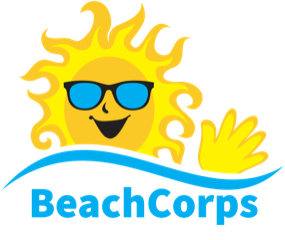While developed separately, the BeachCorps model reflects many of the principles of Robert Lupton’s seminal work “Toxic Charity” and his “Oath for Compassionate Service.”
Principles #1 “Never do for the poor what they can do for themselves” and #2 “Limit one-way giving to emergencies” follow the same logic of local empowerment. The BeachCorps model focuses on empowerment and engagement and avoids activities that create a culture of dependency that is all too common in “voluntourism.” Two-way engagement, where locals learn about volunteers and vice-versa, reinforces empowerment by creating relationships of equals. In addition, BeachCorps will only work with worthy causes backed by sustainable, officially recognized charities that build upon local efforts. We love our BeachCorps Volunteers, but they are not the true heroes. The true heroes are the local heroes who will stay fighting for their causes and their communities after you fly home.
BeachCorps will fully leverage the social media connections of volunteers so that volunteers understand that one of the best ways to support a worthy cause is to testify to it before your 500 Facebook friends. The poor cannot reach those hundreds of potential supporters themselves. Nor can the poor leverage relationships with hotel chains, airlines, and other private businesses to advance projects the way BeachCorps can.
The BeachCorps model will also “Empower the poor through employment, lending, and investing, using grants sparingly to reinforce achievements (Principle #3). BeachCorps programs that involve building will ensure that local skilled workers are part of the project, which would probably not have occurred without the financial support of BeachCorps volunteers. Many BeachCorps volunteers will help as English teaching assistants, helping Dominicans work towards better jobs and better futures. The empowerment principle will be reinforced ensuring that each program includes beneficiaries of BeachCorps programs who “pay it forward” by giving back to their own communities.
Free clothing programs that foster dependency and reduce self-respect can become transformed into entrepreneurial thrift stores that better benefit the community by creating a culture of empowerment, while still allowing tourists coming to volunteer to donate to the cause. BeachCorps volunteers will be encouraged to bring their lightly used clothing and other donations for local thrift stores, such as in our Dynamic Donor program.
BeachCorps also advances Principle #4: “Subordinate self-interest to the needs of those being served.” All BeachCorps projects will be laser-beam focused on the needs of the cause, not the ego of the volunteer. Too much “voluntourism” requires nonprofit causes to jump through hoops and make significant sacrifices in order to please the volunteer. The wide variety of BeachCorps activities allows local causes to pick and choose activities that advance their mission, even changing activities at the last second if it serves the cause. Trip activities will be planned in advance but may change if changing the activity benefits the cause.
Moreover, the BeachCorps motto “A little grain of sand” instills in the volunteer a sense of humility, reducing the urge to swoop in as a savior and increasing the possibilities for two-way people-to-people exchanges based on equality. To symbolize this dedication to the cause, each BeachCorps project will be a “no-selfie” zone where volunteers are strongly discouraged from taking selfies to emphasize that the focus of photography and videography should be on promoting the cause, not self-promotion.
Another criticism of service travel, especially faith-based service travel, is that the same amount of funds going towards airfare, transportation, and lodging could have been better used by the cause in direct purchases of services and materials.
This criticism is much less applicable to the BeachCorps model since much of the cost of the trip covers a regular vacation that would have occurred anyway. The airfare and the hotel are already paid when people take regular beach vacations. The efficiency of the BeachCorps model is further highlighted because BeachCorps vacations will cost hundreds of dollars less than existing service travel vacations by firms not using the BeachCorps model.
BeachCorps programs will also advance Principle #5: “Listen closely to those you seek to help, and in particular listen to what is NOT said but apparently felt.” BeachCorps will only partner with organizations that have strong connections to local communities so that the full impact of projects can be measured. BeachCorps will work with partners to ensure that local community views are respected in programs, even where those views are difficult to elicit. Finally, BeachCorps will encourage frank feedback from nonprofit causes and any insights on possible problems given by BeachCorps volunteers themselves about potential negative aspects of BeachCorps projects.
Finally, by focusing on the first five principles and by constant self-criticism, BeachCorps projects will advance the Principle #6, the most important: “Above all, do no harm.” A little sand in the wrong place can do a LOT of harm. BeachCorps will always be aware that service travel, no matter how well intentioned, can have unintended consequences. BeachCorps will develop a robust feedback mechanism (including through TRIP ADVISOR where volunteers are encouraged to share their ideas on the impact of projects.
